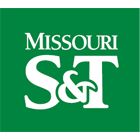- News and articles
- Find usIDP AustraliaIDP BahrainIDP BangladeshIDP CambodiaIDP CanadaIDP ChinaIDP EgyptIDP GhanaIDP Hong KongIDP IndiaIDP IndonesiaIDP IranIDP JordanIDP KenyaIDP KoreaIDP KuwaitIDP LebanonIDP MalaysiaIDP MauritiusIDP Middle EastIDP NepalIDP New ZealandIDP NigeriaIDP OmanIDP PakistanIDP PhilippinesIDP Saudi ArabiaIDP SingaporeIDP Sri LankaIDP Taiwan, ChinaIDP ThailandIDP TurkeyIDP UAEIDP VietnamIDP Corporate
- Social
- English
- Where we operate
- Courses
- Scholarships
- IELTS
- About IDP
- Student Essentials
- News and articles
- Find us
- Find us
- Find nearest IDP offices
- IDP Australia
- IDP Bahrain
- IDP Bangladesh
- IDP Cambodia
- IDP Canada
- IDP China
- IDP Egypt
- IDP Ghana
- IDP Hong Kong
- IDP India
- IDP Indonesia
- IDP Iran
- IDP Jordan
- IDP Kenya
- IDP Korea
- IDP Kuwait
- IDP Lebanon
- IDP Malaysia
- IDP Mauritius
- IDP Middle East
- IDP Nepal
- IDP New Zealand
- IDP Nigeria
- IDP Oman
- IDP Pakistan
- IDP Philippines
- IDP Saudi Arabia
- IDP Singapore
- IDP Sri Lanka
- IDP Taiwan, China
- IDP Thailand
- IDP Turkey
- IDP UAE
- IDP Vietnam
- IDP Corporate
- Social
- Language Switcher
- IDP Education /
- Colleges and Universities /
- United States /
- Missouri University of Scie... /
- Master of Science for Teach...


Location
United States
Qualification
Masters Degree
Fees
USD28320
(2025)
Duration
3 Semester(s)
Next intake
02 June 2025
Entry Score
6.5
IELTSCourse info
The master of science for teachers program is primarily designed for secondary school teachers in the physical sciences and mathematics. The program of study must include at least 30 hours of courses numbered at the 4000-level or above in science and mathematics, three hours of which must be at the 6000-level. A student may substitute up to six credit hours of coursework at the 3000 level in place of six hours of 4000 level courses, any such courses must be from departments other than mathematics and statistics and are subject to the approval of the student's master's committee.
Credits - 32
- Scholarships View all scholarships
- Internships
Entry requirements for Missouri University of Science and Technology
Application Deadline
The application deadline isn't available Speak to an IDP counsellor for more detailed information
Further information
If you aren't eligible for the above entry requirements, you might ant to explore pathway options at Missouri University of Science and Technology. If you want to find out more, speak to our counsellors.
THE World Ranking
401st / 1250
THE World RankingWhat our students think
We’ve haven’t received any reviews for this institution yet.
Recommended for you
- THE World Ranking:351
- Graduate Certificate
- Philadelphia , United States
- Next intake:08/2025
- Entry Score: IELTS 6.0
- 0 (2025)
- THE World Ranking:3
- Graduate Certificate
- Cambridge , United States
- Next intake:06/2025
- Entry Score: IELTS 7.0
- USD0 (2025)
- Masters Degree
- Fort Lauderdale-Davie , United States
- Next intake:08/2025
- Entry Score: IELTS 6.0
- USD4218 (2025)
- THE World Ranking:143
- Graduate Certificate
- College Station , United States
- Next intake:05/2025
- Entry Score: IELTS 6
- USD5537 (2025)
- THE World Ranking:1001
- Graduate Certificate
- Vermillion , United States
- Next intake:05/2025
- Entry Score: IELTS 6.0
- USD6384 (2025)
- THE World Ranking:1001
- Graduate Certificate
- Vermillion , United States
- Next intake:08/2025
- Entry Score: IELTS 6.0
- USD6384 (2025)
- THE World Ranking:1001
- Graduate Certificate
- Vermillion , United States
- Next intake:08/2025
- Entry Score: IELTS 6.0
- USD6384 (2025)
- Graduate Certificate
- Fargo , United States
- Next intake:08/2025
- Entry Score: IELTS 6.5
- USD6637 (2025)
Your action plan
Step 1
Shortlist your courses
Choose the best three courses you’re most likely to pursue.
Step 2
Check your eligibility
Get an instant in-principle offer for courses with the IDP FastLane tag.
Step 3
Apply through IDP Live
Fill out the form once and use it to apply to multiple courses.
How does IDP FastLane work?
With the FastLane 'Offer in Principle', you'll know in minutes if you'll be accepted!
Select an institution and course
Create your academic profile
Submit your application for an 'Offer in Principle'
Your chosen institution(s) will send you a decision in minutes!
Get ready to apply with an expert counsellor




